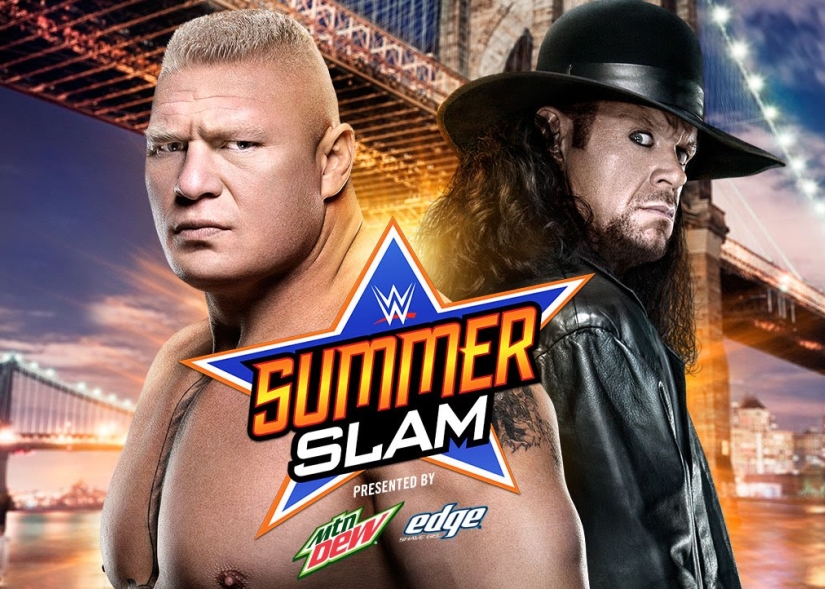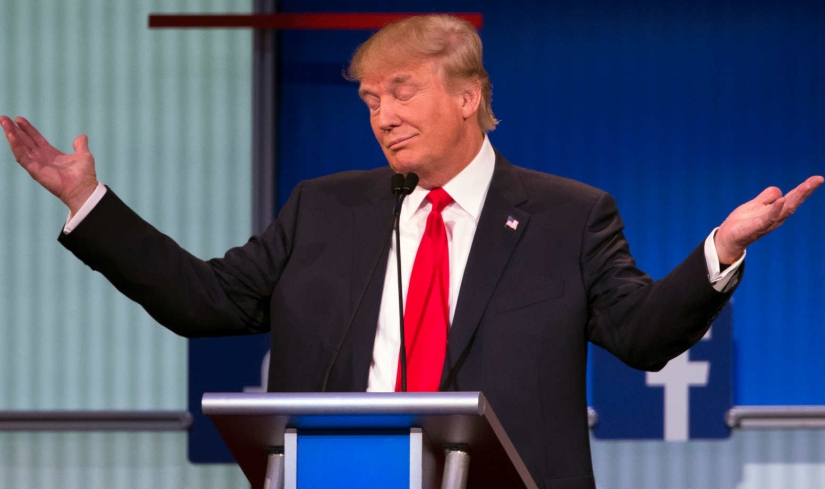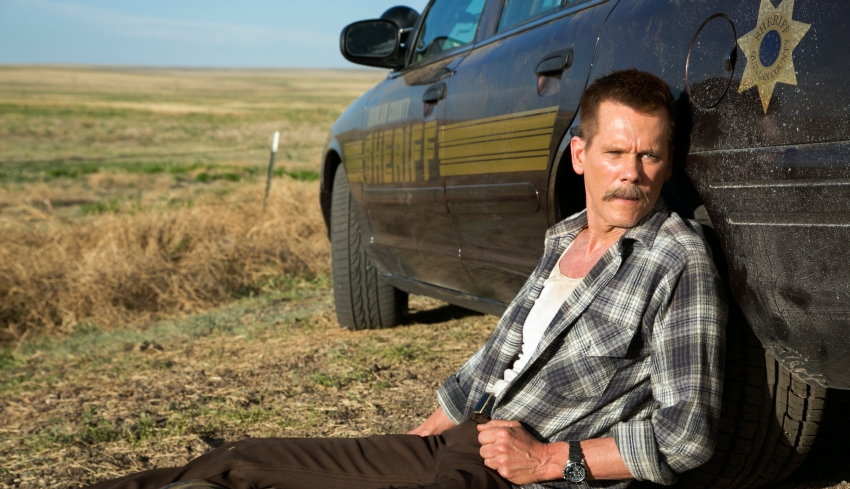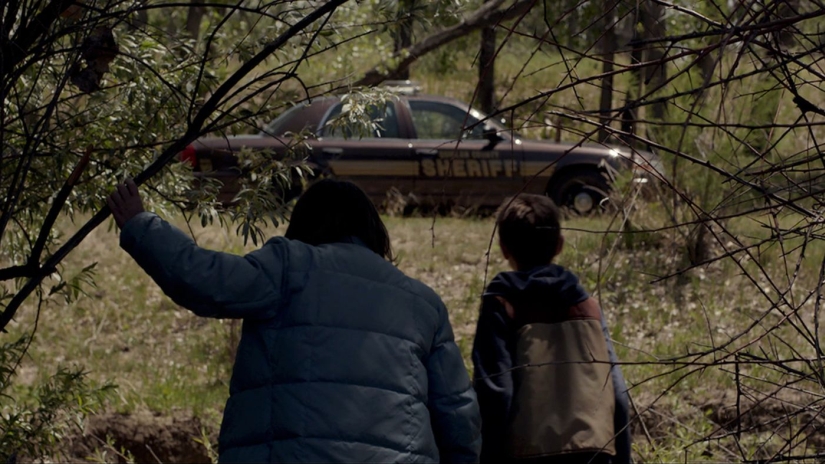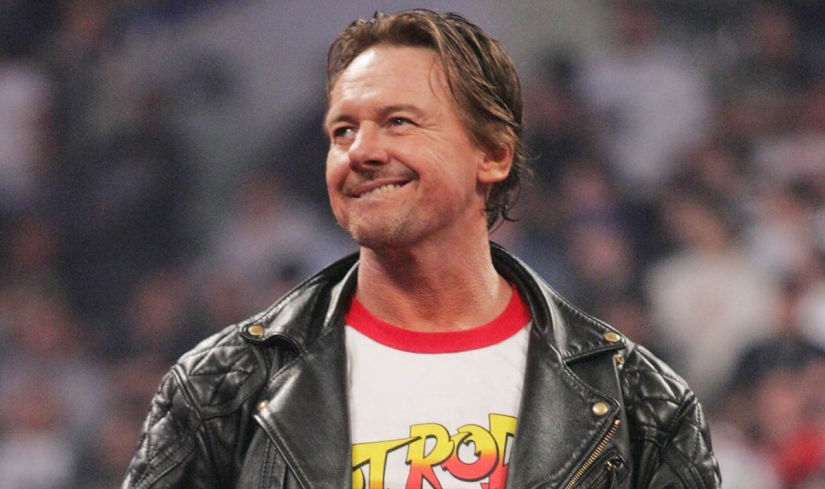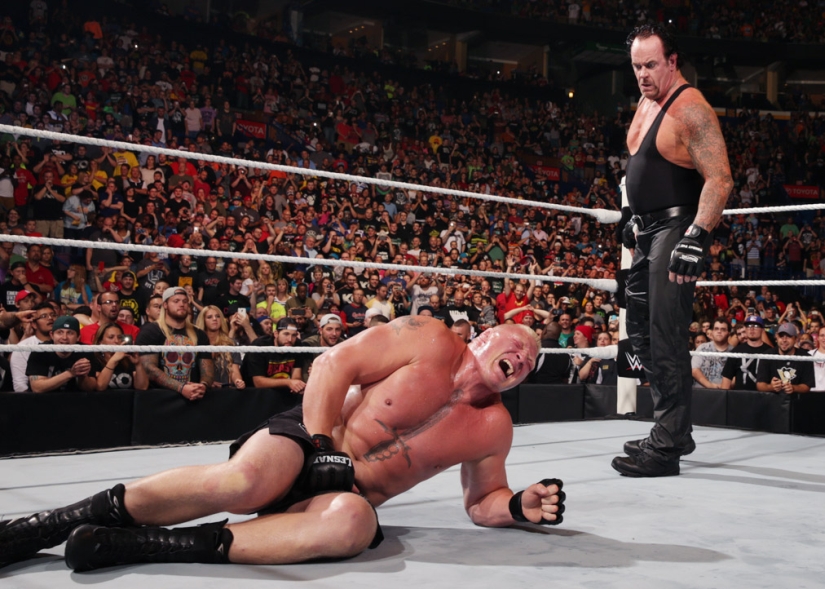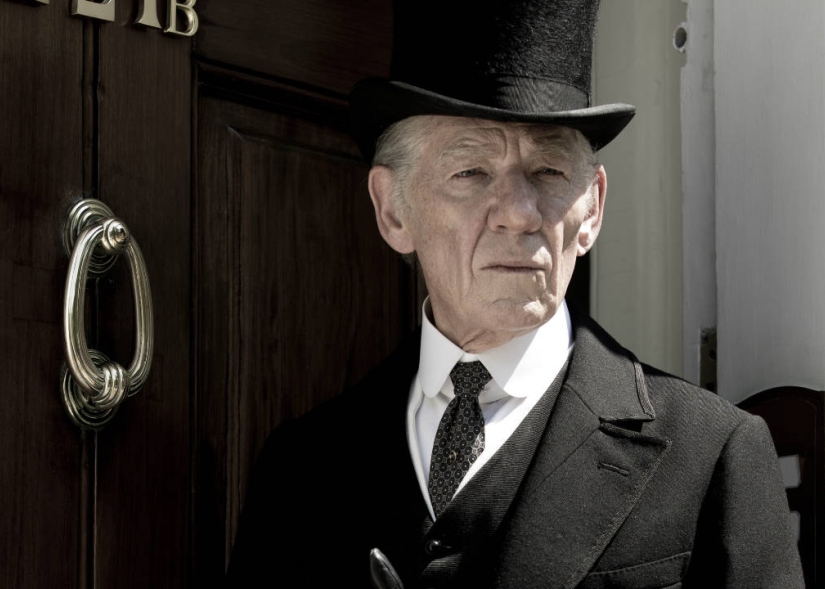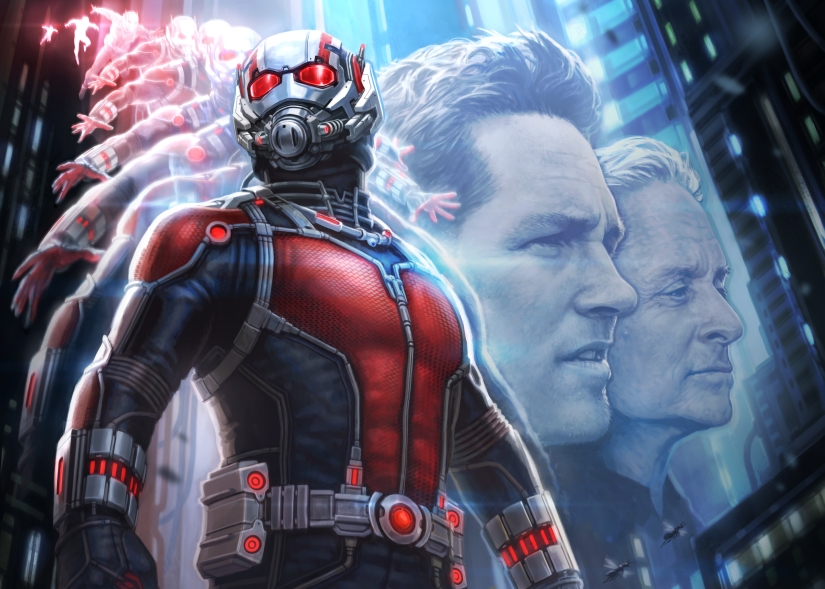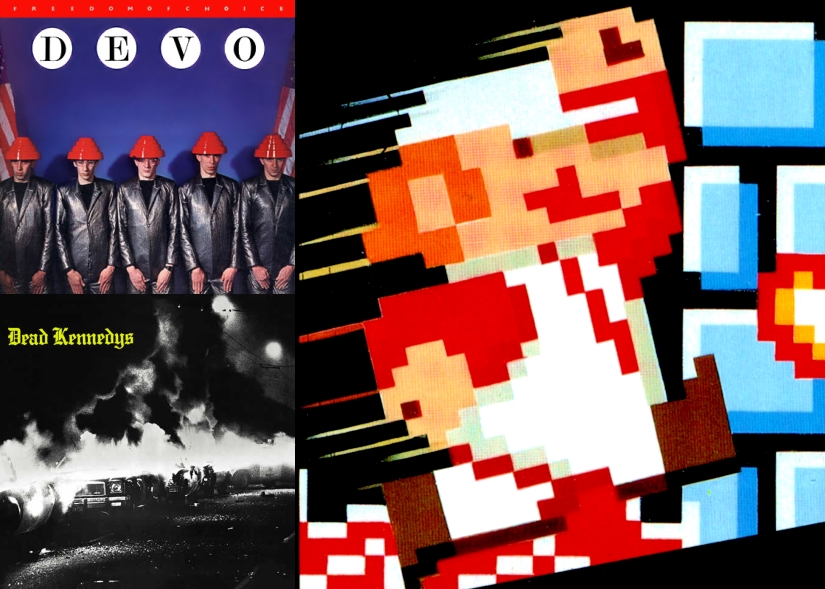WWE SummerSlam 2015: Results and Match Reviews
WWE SummerSlam 2015 promised to be the biggest and best SummerSlam of all time. Almost four hours of action and 10 matches with two main events, including the long-anticipated rematch between Undertaker and Brock Lesnar. The show had Jon Stewart as host, a match with Arrow's Stephen Amell, and a guest appearance by Mic Foley.
But let's face it, SummerSlam 2015 was a stinker.
If Monday Night Raw is three hours that should be cut to two, SummerSlam 2015 is four hours that should be cut to about two and change. Too many inconsequential matches, screwy finishes, and just bad writing and booking. NXT: TakeOver, which took place the night before SummerSlam 2015, was just over two hours, and a reminder of why quality is more important than quantity. Hell, indie promotion Ring of Honor's Field of Honor show in Coney Island over the weekend was far better than SummerSlam 2015 too.
I feel bad for anyone who paid for SummerSlam on actual pay-per-view.
Let's go through the weekend of wrestling in Brooklyn and then consider the results, the highs, and the lows of SummerSlam 2015.
2016 Republican Presidential Debate #1 - Hello, Cleveland!
The first Republican Presidential Debate was held last night. There were two of them if you counted the "Kids' Table" debate earlier, which included presidential hopefuls polling outside of the top 10. Anyone who tuned in hoping for the Donald Trump show was not disappointed since Trump was the event's main draw. The first question out of the gate was aimed at him, essentially asking, "Can you please promise not run as a third-party candidate?" Trump, pouting and nodding, said he wouldn't promise anything, won't rule out going rogue.
Kentucky Senator Rand Paul was the first to tussle with Trump on the main stage. Former Arkansas Governor Mike Huckabee made a sly dig at Trump in his closing statement, but instead shifted his focus to presumptive Democratic nominee Hillary Clinton. Leading establishment candidates like former Florida Governor Jeb Bush and Wisconsin Governor Scott Walker instead avoided direct or indirect engagement with Trump, trying to keep their distance from the lightning rod. Everyone's scrambling around Trump in some way, and it'll continue as long as the Donald is in the running. The laughs will keep coming.
Fox News' moderators during the big debate were Chris Wallace, Megyn Kelly, and Brett Baier. Each asked some surprisingly pointed questions of several of the candidates rather than serving up underhands and softballs. It was clear that part of the point of this first debate was to cull some of the herd, and Trump complained afterwards that he didn't think his questions were particularly fair (or balanced, wakka wakka wakka). It remains to be see if any culling will occur just one debate in. The next Fox-televised debates will be in Wisconsin in November (on Fox Business) and just ahead of the Iowa caucuses in January (on Fox News). Assuming the field remains as large as it is through Iowa, culling might continue to be the name of the game.
Let's do a brief rundown of the highlights, lowlights, winners, losers, and applause lines/zingers of the first Republican Presidential Debate.
[Review] Cop Car
In the opening scene of Cop Car, writer/director Jon Watts establishes the two different worldviews that make his film a compelling thriller. There's the child world and the adult world. The child world is one of fantasy and games without consequences. Friends Travis (James Freedson-Jackson) and Harrison (Hays Wellford) have run away from home, and they think they can survive on their own with just a Slim Jim and their ability to curse without repercussions. The adult world, by contrast, is one of violence, manipulation, and murder. But Travis and Harrison don't know that yet. They will soon.
Cop Car's demarcation between the child world and adult world is so pronounced that it's almost like a fairy tale. Rather than crossing the village border for the dark woods, our nine-year-old runaways crawl past a barbed wire fence. Eventually they find an abandoned cop car and take it for a joy ride. Had Travis and Harrison not stumbled onto the cop car, they probably would have given up running away and been back with their respective parents by sundown. Instead, they wind up deep into the ugly adult world where it's unlikely that they'll make it through the night.
[youtube id="MBK_9GlVlc0"]
Cop Car
Director: Jon Watts
Rating: R
Release Date: August 7, 2015
Cop Car has a lot in common with Coen Brothers thrillers like Blood Simple and No Country for Old Men. There's also a strong vibe of Jeremy Saulnier's lo-fi 2014 revenge movie Blue Ruin. Regular people wind up way over their heads in an uncontrollable situation, and they're forced to deal with it to survive. There's this black comedy that comes from confrontations with one's own ineptitude (or inflated sense of ability) during life or death situations. With the two child leads, there's this childlike sense of "No way!" when they steal the cop car and drive off, a kind of young incredulity about the unchecked freedom of adulthood. They speed, they drive on the wrong side of the road, they play with guns, they think they're invincible.
Then in comes Kevin Bacon, who plays Sheriff Kretzer, the cop whose car was stolen. Kretzer's shady backstory gets revealed slowly but not fully as the film unfolds. Watts is smart not to provide all the details and instead just gives enough pieces for the audience to reconstruct his crimes. It makes the world of Cop Car feel more lived-in. Like the child runaway plot and fairy tales, we're familiar with this kind of dirty-cop story too.
The kids think they're in control but wind up losing it. Kretzer's got the opposite arc of control, and spends early parts of Cop Car helplessly trying to cover his own ass with the people at police dispatch. There's something comically Benny Hill-ish about him running panicked through a open field when he can't find the car; you can almost hear an internal monologue of "oh crap, oh crap, oh crap" with each stride. On top of that, something about the mustache and his posture makes Kretzer look like a side character from Super Troopers. Yet Krezter is a good improviser, and he knows how to use the system to his advantage.
Bacon imbues Kretzer with a wolf-like menace. His desperation makes him seem like some raging animal in a frenzy, but he becomes more refined as the situation becomes clearer and he sees an opportunity to re-take control. When he's finally able to talk to the boys over the police radio, there's this stern, authoritative quality to Bacon's voice that conveys a clenching fist and gnashed teeth and a loaded gun. The Krezter character and Bacon's performance are rooted in the black comedy of sudden ineptitude and black-hearted desperation.
In addition to the child world being subsumed by the adult world, there's also an interesting inversion of dominance going on between Travis and Harrison. Travis seems more like the leader of the two boys. The smaller of the two, he's recklessly brave, more vocal, willing to drop and f-bomb and play mischief maker during their dalliance with running away. Yet as the situation becomes more dangerous and the boys find themselves deep in danger, Travis' young bravery recedes and Harrison needs to find a way to assume the lead.
Watts proves a capable director of actors as well as action, controlling his shots and dialing back extraneous sounds to get the maximum dread and tension from a moment. I found it surprising that he was tapped to direct the Spider-Man reboot for Marvel Studios, though. Nothing about Cop Car screams, "This guy is a perfect fit for Spider-Man." (With great Cop Car moments comes great responsibility?)
It seems like part of a pattern of promising indie directors being handed the reins to major studio tentpoles. Think Marc Webb on The Amazing Spider-Man and its sequel, Colin Trevorrow doing Jurassic World, and Josh Trank on Fantastic Four. It's a bit of a surprising trend, one that gives fledgling directors big breaks but may also break their spirits given the creative compromises required to work on a major studio film. As noted in our Ant-Man review, the MCU films are producer/studio-driven rather than director-driven. The cynical part of me thinks that studios believe these indie directors will be more compliant, that they're starving for the breakout hit and will do whatever they're told. That's not always the case. Selma director Ava DuVernay was offered Marvel's Black Panther but passed due to creative differences.
The worst thing that could happen to Watts on Spider-Man is reducing him to a journeyman director, draining him of his talent simply to deliver a competent film on time. I want to go back to Watts' debut, a 2014 horror film called Clown, to see what else his abilities suggest he's capable of. Cop Car makes me want more original work in Watts' future. One hopes his big-studio adventure over the barbed wire fence goes well.
"Rowdy" Roddy Piper (1954-2015): The All-Time Great That Wrestling Fans Loved to Hate
At UFC 190 over the weekend, Ronda Rousey dismantled Bethe Correia in just 34 seconds. (Combined length of Rousey's last three matches: 64 seconds.) Following the match, Rousey gave a shout out to "Rowdy" Roddy Piper, the wrestling legend who passed away last week at the age 61. Piper was one of Rousey's heroes and friends. She'd spoken to him just a few days before, and it's from Piper that the Women's Bantamweight Champ inherited the nickname "Rowdy." Rousey, elated by the win but showing hints of sadness, said she hoped Piper and her late father enjoyed watching the fight together.
Roddy Piper is the latest wrestling legend to die this year. While I always enjoyed Dusty Rhodes' promos (and I regret not writing about his passing a several weeks ago), I always had more of a connection to "Rowdy" Roddy Piper. He was a tough-guy madman, a prototype for heels and tweeners in the era of professional wrestling I grew up watching. Roddy Piper was the raging, motor-mouthed Daffy Duck of the squared circle, just the sort of crazed SOB that people were supposed to love-to-hate.
But really, in the end, people just wound up loving Roddy Piper.
[youtube id="yBgk7z23zfc"]
While discussing the documentary Bodyslam: Revenge of the Banana!, I mentioned that the best wrestling characters are really just extensions of a person's real personality. If that's the case, Roddy Piper was probably a certifiable loon. I think he once said he had more issues than TV Guide, and it played into his larger-than-life character. He'd blast out invective, often at high speeds, much of it crazed, and yet consistently compelling and oddly brilliant. Re-watching several of his promos over the weekend, I noticed again how his delivery had a zonked-out sing-song. He was part obnoxious schoolboy and part deranged parrot.
Listen to him again. Piper's voice is like an oscilloscope gone haywire, or perhaps the highs and lows in his voice were like a seismograph that registered every tremor of fear from those nearby. How much of this stuff had Piper written ahead of time and how much of it did Piper ad lib on the spot? The brilliance is that the audience, even contemporary smarks, aren't sure. The character's shtick is so well realized that even in the cartoony world of 80s pro-wrestling, it seems real.
Roddy Piper was born Roderick George Toombs. His childhood was a rough one, and he ran away from home around junior high or high school. The old cliché was you'd run away to join the circus. Running away to join professional wrestling doesn't seem much different, really. The circus and the squared circle are built on spectacle, performance, entertaining danger, and the workers learning how to speak a dialect of carny so the marks in the crowd don't catch on.
[youtube id="c9rrgJXfLns"]
Piper made his in-ring debut in Winnipeg at age 15 against Larry Hennig, the father of the underrated all-time great Mr. Perfect. Piper was enhancement talent during the rookie years of his career (aka a jobber, aka he made other wrestlers look good by losing) and learned the ropes of the business the old-fashioned way. Eventually Piper turned up in Los Angeles to feud with Chavo Guerrero Sr., and then Georgia to tussle with Ric Flair and Greg Valentine. When he signed with the WWF in the mid-80s, his career took off. Though Hulk Hogan was the company's primary draw, Piper was Hogan's antithesis and adversary. As much as Hogan and the other wrestlers on the roster, Piper was instrumental in making the first WrestleMania and subsequent wrestling events of that era major hits.
Piper's odd place in pop culture is mostly rooted in that Rock 'n' Wrestling phase of the 80s. He did make a few films, many of which are cult-movie also-rans, but the best of which is John Carpenter's 1988 masterpiece They Live. In it, Piper plays a tough drifter named Nada who uncovers an alien plot to turn humanity into a bunch of compliant, passive consumers. There's a high-minded critique of the 80s similar to Alex Cox's Repo Man, but there's also a schlocky B-movie quality that's perfect for the nature and execution of the conceit. How do you fight consumerism? Sunglasses and shotguns, buddy. In that weird intersection between low-brow and high-brow, They Live and professional wrestling were two primary influences on artist Shepard Fairey.
It's Piper's persona as a badass that comes through in They Live. Perhaps Kurt Russell could have played Nada, but the whole feel of the film would have been different. Without Piper's in-ring work as a wrestler, Carpenter probably wouldn't have included the kookiest street fight in cinematic history, let alone allow the scene to go on as long as it does. Piper's a great fit for the movie for much the same reason that the Roddy Piper character was an ideal wrestling gimmick. Piper is just playing himself, or at least an extension of himself. He may have been born Roderick Toombs, but Roddy Piper wound up being the genuine article.
[youtube id="uzvNPq_5P2g"]
There's one particular promo from Piper that I've always loved. In it, Piper smashes a real beer bottle on his head. Bleeding profusely from his brow and possibly only half-conscious, he then constructs a monologue that's part intimidating rant and part logical syllogism. There's determination in his voice, and some of that may just be hyper-focused concentration so he doesn't pass out. Somehow, Piper is cognizant enough to form sentences, and even, like the pro he is, turns so he's facing the correct camera when the angle is switched. Piper pauses as the cut happens, composes himself, concludes his speech, and then walks off.
Maybe he passed out when he was away from the crowd and the camera. Probably not, though. I want to believe in the character of Roddy Piper.
Just watch that promo. Seriously, don't mess with him. Remember the line he delivered in They Live?
"I have come here to chew bubblegum and kick ass... And I'm all out of bubblegum."
Truth is, Piper was always out of bubblegum.
WWE Battleground 2015: Results and Match Reviews
WWE Battleground 2015 will probably be notable as a SummerSlam set-up rather than its own decent PPV event. The card was pretty solid overall, yet I couldn't help but feel a strange middling quality to Battleground. Looking at the main event, the John Cena vs. Kevin Owens rematch match, and the debut of NXT women's talent on the main roster, I felt like I'd watched good work but know everyone involved is capable of much better. They're probably all saving it for SummerSlam next month, which is the #2 show of the year. That's fine. Besides, it's just Battleground, and the next few weeks of TV should be interesting.
As you probably know by now, The Undertaker is back, and he's got his eyes on Brock Lesnar. Also, The Undertaker is looking his age, and a bit like Rip Torn, for that matter. As Normal Mailer learned while making Madstone, Rip Torn fights dirty. Truly, Rip Torn is just the type of crazy son of a bitch who'd run in during the main event of Battleground 2015. If Rip Torn runs in during SummerSlam 2015, it will be one of the best pay per views of all time. (Sorry, WrestleMania X7.)
Let's go through the Battleground 2015 card match by match.
[Review] Mr. Holmes
Detective characters are often stand-ins for writers, and sometimes vice versa. The work of solving a mystery, like writing a tricky story, involves putting disparate pieces together into some form that logically holds together and seems true, no matter how improbable. Adapted from the novel A Slight Trick of the Mind by Mitch Cullin, Mr. Holmes puts the world's greatest detective in the role of a writer. Elderly and with a flagging memory, Sherlock Holmes tries to unravel the mystery of his final case and why it forced him into retirement on a Sussex farm where he tends to bees.
The idea of an aged Sherlock Holmes trying to unravel the mystery of his own memory is a fascinating set-up, especially given how elusive and illusory our memories can become as we get older. Mr. Holmes re-teams director Bill Condon and star Ian McKellan, whose careers both received a major boost in 1998 thanks to the film Gods and Monsters. The always-good Laura Linney is also in the film as Mrs. Munro, Sherlock's maid and caretaker.
However, even with all that promise, there's something about Mr. Holmes that seems so elementary.
[youtube id="WhPPq9cmPCc"]
Mr. Holmes
Director: Bill Condon
Rating: PG
Release Date: July 17, 2015
In Mr. Holmes, both Sherlock Holmes and John Watson were real people. They solved actual cases reported in the news, and Watson wrote them down as popular novels to be sold to the public. The sleuths were celebrities, and at the start of the film, a woman who sees the retired detective in passing seems starstruck. She asks no one in particular if that man going by is the real Sherlock Holmes. Sherlock is annoyed by the notoriety since not everything in the books was true. The deerstalker cap, the calabash pipe--pure invention. But by writing about the last case, Sherlock wants to set the record straight, at least for himself.
That case that triggered Sherlock's lapse in memory was a case he did without Watson present. It involved a woman who seemed demonically possessed to play a glass harmonica. We get snippets of the case throughout Mr. Holmes, which intercuts the past being written/remembered, the present in post-WWII Sussex, and a flashback to a recent trip to Japan. In the present day, the curmudgeonly Sherlock tends to his beehives while widowed Mrs. Munro looks on downtrodden. Her son Roger (Milo Parker) is a Sherlock Holmes fanboy and idolizes the detective and his shtick. While in Japan, Sherlock's mind is so addled by age and regret that he needs to write his host's name on his shirt cuff just to address the man during dinner.
There's a line by the writer Clive Barker (an executive producer on Gods and Monsters) that seems apt here: "I write to remember, and I also write to forget." We jot things down so we'll remember them for later or to coax recollection, but we also write things down so we can finally forget about them, sort of like deleting files. In Mr. Holmes, the process of writing is about forcing out memories and being able to let the memories go. Here the Barker line is lent a sense of absolution. By solving his own human mystery through the process of writing, the detective may be able to die in peace.
The big issue isn't the elements of Mr. Holmes but rather how sloppily the elements come together. The three different threads of the story don't braid nicely. Rather than complementing and enhancing one another, they intersect and interrupt and then just run semi-parallel. I felt like they were each their own discrete Elderly Sherlock Holmes adventures, though ones that happen to be faintly contingent upon one another--the difference between "stuff that happened" and "story."
The sections of the film that deal with Mrs. Munro and Roger are warm and well-acted, but almost too sweetly so, and its class drama seems only half-explored. The Japanese segment seems dashed off at times, its significance, even when revealed, a trifle in the conscience of the detective. The primary interest is the remembrance of Holmes' final case, but even that winds up dissatisfying. The solution is too convenient, as if the final piece of the puzzle falls into Holmes' mind without the effort of the conscious mind. It's a lazy cop out that lacks the surprise or sense of invention that's found in the better stories of Arthur Conan Doyle.
McKellan at least shines, and he keeps Mr. Holmes watchable even when the script treads water. He portrays Sherlock a cold and quick in his final glory days, dashing too. In Japan, McKellan plays the detective as haunted but still trying to pass as his old self. As much as he hates the pop culture idea of himself, he's trying to play the part for his host. It's in the present, in the thick of his case of memory, where Holmes is the most human and vulnerable. He dodders like an old man at moments, and he weeps for his lack of wits. He's no longer himself, and he can't figure out why. What a dreadful mystery for any detective, and what a horrible block for someone writing a memoir.
[Review] Ant-Man
There was a concern that Ant-Man would lack personality. Edgar Wright (Scott Pilgrim vs. the World) had spent ages developing the Ant-Man screenplay, but he left the project due to creative differences with Marvel Studios. Peyton Reed replaced Wright as director and the screenplay was retooled by Adam McKay (Anchorman) and star Paul Rudd. Ant-Man wrapped principle photography in December 2014 to meet its July 2015 release date.
Shockingly, Ant-Man is good in spite of the changing hands and the accelerated turnaround from production to release. In fact, the film is chock full of giddy creativity that's lacking in other blockbusters. There's solid action throughout, but there's a healthy dose of self-effacement and self-deprecation, as if everyone involved acknowledges that you're watching a movie about Ant-Man, of all people.
While there's something to be said about my initial low expectations, Ant-Man succeeds primarily because it's allowed to be its own little, lighthearted animal in the big, bloated Marvel Cinematic Universe.
[youtube id="pWdKf3MneyI"]
Ant-Man
Director: Peyton Reed
Rating: PG-13
Release Date: July 17, 2015
Scott Lang (Rudd) is an ex-con who gets back into cat-burgling when he can't make ends meet in civilian jobs. Thanks to his MacGyver-like cunning in a nicely crafted heist sequence, he steals a super suit that belongs to scientist Hank Pym (Michael Douglas). The suit allowed Dr. Pym to shrink down to insect size and carry out covert military operations for the U.S. Government. Scott teams up with Pym and Pym's daughter Hope (Evangeline Lilly) in order to stop Darren Cross (Corey Stoll), a protege of Pym's who wants to use similar shrinking technology to create an army of miniature soldiers for the highest bidder.
Even though Ant-Man is a origin story, it never feels bogged down in set-up like many other origin stories. Pym passes his heroic legacy on to Scott, which makes it feel like we've hopped into the middle of a larger story rather than the cold start of a new one. The brisk, comic pace conveys Scott's transition from sarcastic doofus to unwitting-hero to reluctant-hero to superhero. A key training sequence mid-film is full of recurring gags and variations on recurring gags, each one offering a sense of character development and progression. Like a competent kung-fu film from the 1970s, we watch someone with talent but no discipline refine themselves under the tutelage of a master. There's clunkiness in the way Ant-Man deals with father-daughter and surrogate-father-son relationships, however, which is the foundation for many of the character interactions. It's serviceable and occasionally saccharine, though the father-child theme at least yields a few genuine moments of unexpected emotion.
When Scott learns what Cross could do with shrinking technology, he says that they should call The Avengers. Pym sneers that all the Avengers do is drop cities from the sky, which seems to define the contrast in Ant-Man's approach to action. The movie can't possibly outdo The Avengers in terms of the scope, so Ant-Man instead relies on the humor of its small stature. They can't drop cities from the sky, but they can blow up a scale model to simulate citywide destruction; ditto the derailment of a Thomas the Tank Engine train set. Seeing Scott grab the grooves of an EDM record on a turntable or run alongside a colony of ants recalls both The Incredible Shrinking Man and Honey, I Shrunk the Kids, each of which found a kind of imaginative awe in the miniature world. It's mostly unfamiliar territory for modern blockbusters, almost all of which every weekend depict the total destruction of major cities and the deaths of thousands. You see one metropolitan city get completely decimated, you've seen 'em all. Ant-Man is refreshing by comparison.
Rudd's a charming scoundrel with a heart of gold, and he carries the lead role with some fine wisecracks and slacker charisma. Douglas gets to do the old-dude-deadpan routine, and also plays concerned father to Hope and disappointed father-figure to Cross. On the note of Hope, she's saddled with the trope of the icy careerist, but there's enough in the writing (apparently added during the rewrite phase) and in Lilly's performance that makes her a bit more human. Scott's supporting thieves add personality when on the screen, particularly Luis played by Michael Peña, whose comic timing and delivery propel some of my favorite non-action sequences in the film.
There's something I've noticed as Phase Two of the Marvel Cinematic Universe draws to a close. The standouts for me have been the films that got away from straight-up superheroics. Even though Avengers: Age of Ultron did great at the box office, the movie was a generic rehash of the first Avengers. By contrast, Captain America: The Winter Soldier added the paranoia of political thrillers from the 1970s, and Guardians of the Galaxy was an '80s misfit movie (i.e., The Goonies in space). Since the Marvel Cinematic Universe is driven by producers/Marvel Studios rather than by directors/screenwriters, mixing a different tone or genre into the superheroics seems like a form of creative triangulation. To put it another way, hybridty and genre cross-pollination is the best way for a Marvel film to develop its own identity given the way that they're made.
In that regard, Ant-Man belongs in that standout class from Phase Two. The film sticks to its lighthearted tone and blends the madcap imagination of '50s and '60s sci-fi films with the meticulous, ticking-clock operations of a cinematic caper. Ant-Man's a movie with its own sense of character even though it isn't driven by a directorial voice or vision. The filmmakers of Marvel's Phase Three can learn something useful from the little guy.
New 33 1/3 Books on Devo, Dead Kennedys, and Super Mario Bros Are Criticism Done Right
There's an old, dismissive joke about music criticism: "Writing about music is like dancing about architecture--it's a really stupid thing to want to do."
That's funny, sure, but good music critics can dance like motherfuckers. Dancing is fun, it's stimulating, it's potentially generative. When people can dance as well as they do in the 33 1/3 series, that's something that should be celebrated. (Here I am, dancing about dancing.)
The 33 1/3 series began publishing pocket-sized books of music criticism in 2003, each focused on a single album, each a sustained work of long-form criticism. The best entries in the series are exceptional culture writing. Some of the standouts include Celine Dion's Let's Talk About Love: A Journey to the End of Taste by Carl Wilson, James Brown's Live at the Apollo by Douglas Wolk, David Bowie's Low by Hugo Wilcken, Public Enemy's It Takes a Nation of Millions to Hold Us Back by Christopher R. Weingarten, and Television's Marquee Moon by Bryan Waterman. (Waiting on my shelf to be read: Big Star's Radio City by Bruce Eaton and a novella about Black Sabbath's Master of Reality by Mountain Goats frontman John Darnielle.)
[youtube id="j_QLzthSkfM"]
Three of the recent 33 1/3 books focus on seminal works of the early '80s: Devo’s Freedom of Choice by Evie Nagy, Dead Kennedys’ Fresh Fruit for Rotting Vegetables by Michael Stewart Foley, and, the first entry on videogame music in the series, Koji Kondo’s Super Mario Bros. by Andrew Schartmann. Each of the books are fine additions to 33 1/3. In other words, they dance like motherfuckers.
Form and content are the most basic aspects of aesthetic criticism, and while that's part of the discussion in each of these three new books, the authors also find ways of exploring the time and the place that gave birth to each album. If it's questions of form and content that determine the relative success of individual works of art, it's questions of time and place that help fashion the form and the content, and it's the intersection between the elements of form, content, time, and place that help determine the enduring legacy of the art.
Let's give each of these new 33 1/3 books a quick look. For more information on the books and the series, visit the 33 1/3 site.

